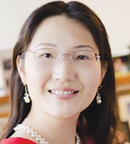In the discussion between patient and doctor, the focus here is patient-centered care. It shouldn’t be about this ‘magic number’ of 75, after which you are no longer allowed to participate in screening.— Cindy S. Lee, MD
Tweet this quote
A study finding that there is no clear cutoff age to stop breast cancer screening has received national coverage in newspapers and CNN as well as in health and medical publications. “I am glad this is catching fire, because it really needs to be out there,” Cindy S. Lee, MD, the study’s lead author and Assistant Professor of Radiology at the University of California, San Francisco, told The ASCO Post.
The study needs to be publicized, she explained, because of confusion created by differing guidelines issued by different organizations and because many patients aged 75 and older are still very healthy and have life expectancies of 10 or more years. The American Cancer Society guidelines recommend continuing breast cancer screening in healthy women expected to live 10 or more years, whereas the Society of Breast Imaging and American College of Radiology recommend that mammography should stop when a woman’s life expectancy is less than 5 to 7 years and when abnormal findings would have no impact in light of age or comorbidities. And according to the U.S. Preventive Services Task Force, there is insufficient evidence to assess the relative risks and benefits of screening mammography in women aged 75 years or older.
Individual Screening Decisions
The study, presented at the 2016 Radiological Society of North America (RSNA) Annual Meeting in Chicago, “adds support for guidelines that encourage screening decisions based on individual patient values, comorbidities, and health status,” Dr. Lee and her colleagues concluded. Those comorbidities are important to consider, as they can limit the overall life expectancy. “Family history, personal history, age, and breast density are still the four big risk factors for breast cancer,” Dr. Lee said.
“In the discussion between patient and doctor, the focus here is patient-centered care,” Dr. Lee stressed. “It shouldn’t be about this ‘magic number’ of 75, after which you are no longer allowed to participate in screening. That is not the right message. There shouldn’t be an age cutoff. It is really based on individual patients. It takes a patient-centered discussion to make that screening decision.” The study looked only at those who had yearly mammography screening, so there are no findings or recommendations on frequency of screening for women aged 75 and older.
Physicians should be proactive in bringing up the issue of continuing screening mammography for women approaching age 75, as well as to older women who may already have stopped getting mammograms, Dr. Lee advised. “We want to make people aware of the new evidence. That might change their decision.” ■
Disclosure: Dr. Lee reported no potential conflicts of interest.


